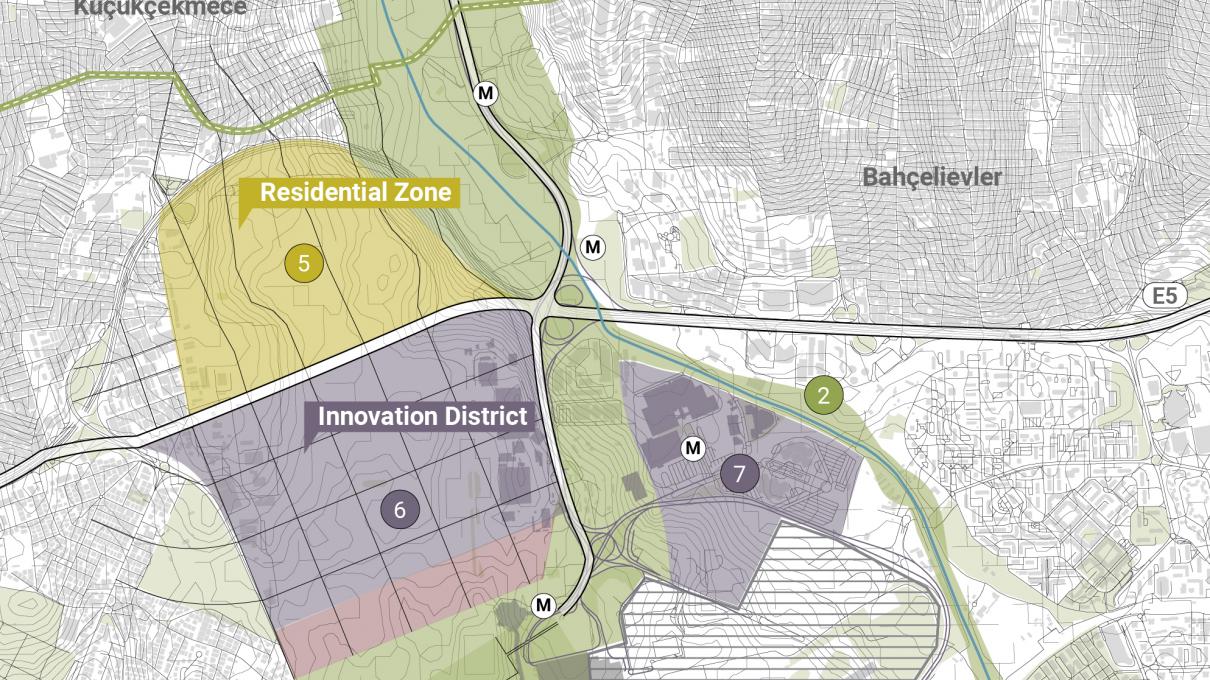Swap Strategy for Urban Resilience

Rafi Segal, Muge Komurcu, Kelly Leilani Main, Joude Mabsout, Nese Dogusan Alexander, Olivia Serra, Hayriye Esbah, Omer Lufti Sen, Orkan Ozcan, Mikdat Kadioglu, Yasemin Ezber, Batuhan Akkaya
As the frequency and intensity of rainfall events continue to increase due to climate change alongside rapid urbanization and unregulated settlement on riparian floodplains, stormwater management is becoming an especially challenging imperative for megacities such as Istanbul, Turkey. Here, increasingly destructive urban flash floods heavily impact communities living in typically lower income areas and disrupts the ability of the city to function as a whole.
This research is a collaboration between climate scientists, urban planners, and architects at MIT and other universities in Istanbul to study and address these challenges with a focus on Istanbul’s recently decommissioned airport site (Istanbul Ataturk Airport) and its surrounding neighborhoods. This site, where a heavily channelized urban drainage system discharges into the Sea of Marmara, is poised to undergo major transformation as developers vie for access to an impending master planning process. However, traditional development models may not adequately account for the intensification of land uses further upstream, which signals a high potential for increased flooding in the area. Furthermore, the site which is nestled between several high-density residential neighborhoods, and an access-challenged urban coastline may be able to offer vital recreational open space and amenities to millions of Istanbul residents for whom access to green space is one of the most ubiquitous urban challenges.
Using analysis of ground-based meteorological station observations, along with other field-based site studies, we developed a strategic planning and design framework that combines resilient stormwater management and equitable access to large-scale open-space amenities. The former airport site provides a unique opportunity to imagine how equity, resiliency, and cultural heritage can play key roles in managing environmental risk while creating new urban spaces for the betterment of city life.
Funding for this research was provided by the Dar Group Urban Seed Grant Program at the Norman B. Leventhal Center for Advanced Urbanism, Massachusetts Institute of Technology.
Learn More
Kelly Leilani MAIN, Joude MABSOUT, Rafi SEGAL, Nese DOGUSAN ALEXANDER, Olivia SERRA, Muge KOMURCU. Swap Strategy for Urban Resilience: Reviving the Ayamama River Corridor and Ataturk Decommissioned Airport in Istanbul, Turkey. Landsc. Archit. Front., 2021, 9(6): 44‒58 https://doi.org/10.15302/J-LAF-1-020058


